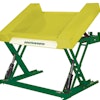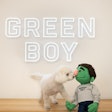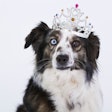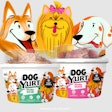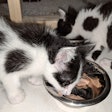French-based petfood manufacturer, Royal Canin, has found its way into the petfood market with a focus on specially formulated petfood diets for specific dog and cat breeds, as well as for pets of different ages and sizes.
Through the Royal Canin petfood brand, parent company Mars Inc. has been able to gain market share with petfood manufacturer Nestle Purina, according to analysts. In 2006, market researcher packaged facts estimated that Mars held 12 percent market share compared to Nestle Purina's 32 percent market share; Mars has since increased its market share to an estimated 17 percent compared to Nestle's 35 percent market share. Royal Canin petfood is distributed through three channels: animal breeders, veterinary offices and specialty pet retailers, such as Petco and PetSmart, while Nestle Purina petfood is also available at grocery stores.
"There's been a huge trend of customers scaling up to premium products, not just out of indulgence, but a lot of the products have functional angles, and that jives well with what Royal Canin has always done," said David Lummis, senior pet market analyst at Packaged Facts.
Royal Canin also offers training classes for both its employees and its customers, including petfood store buyers, veterinarians and breeders, at its St. Charles, Missouri, USA headquarters.
"We want an educated recommender," said Ann Hudson, Royal Canin's corporate affairs director.
The company does not use marketing studies to decide where to invest in new product development, but rather its employees focus on the needs of pets and how to respond to those needs, according to Joe Flanigan, general manager of Royal Canin US. "We know we want to care for the 200 million pets in the US, and our goal simply is to care for more of them," Flanigan said.
"The health angle has become more important," Lummis said. "What it means is, if a company's marketing can convey the health benefits of their product, that's a way of making these foods less of a discretionary expense. Consumers may cut back on (pet) toys, but not on food."

